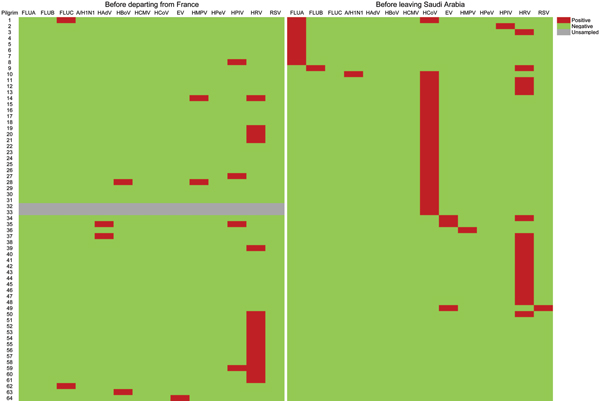Volume 20, Number 11—November 2014
Research
Respiratory Viruses and Bacteria among Pilgrims during the 2013 Hajj
Figure 1

Figure 1. Patterns of respiratory viruses detected among 64 pilgrims who were positive for viruses during the study period before departing from France and before leaving Saudi Arabia, 2013 Hajj. FLUA, influenza A(H3N2) virus; FLUB, influenza B virus; FLUC, influenza C virus; A/H1N1, A(H1N1)pdm09 virus; HAdV, human adenovirus; HBoV, human bocavirus; HCMV, human cytomegalovirus; HCoV, human coronaviruses; EV, human enterovirus; HMPV, human metapneumovirus; HPeV, human parechovirus; HPIV, human parainfluenza virus; HRV, human rhinovirus; RSV, human respiratory syncytial virus;
Page created: October 17, 2014
Page updated: October 17, 2014
Page reviewed: October 17, 2014
The conclusions, findings, and opinions expressed by authors contributing to this journal do not necessarily reflect the official position of the U.S. Department of Health and Human Services, the Public Health Service, the Centers for Disease Control and Prevention, or the authors' affiliated institutions. Use of trade names is for identification only and does not imply endorsement by any of the groups named above.